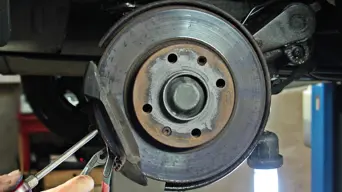How to find a mechanic you can trust (by the Motor Industry Workshop Association)
To avoid unnecessary repairs and costly rip-offs, make sure you find a good mechanic to work on your car. Here’s how…

Picture: NoName_13/Pixabay
702’s Relebogile Mabotja speaks with Pieter Niemand, National Director at the Motor Industry Workshop Association (MIWA) and Dewald Ranft, Chairman of MIWA.
Listen below:
At some point, every car owner will need to take their car to a mechanic.
Who do you trust? And how do you avoid getting ripped off?
Before agreeing to any repairs, it's wise to look out for signs that separate good mechanics from bad ones.
Niemand says a bad mechanic may trick you into unnecessary repairs, overcharge you for poor quality parts, or skip the work entirely while still charging you.
“Unfortunately, many customers fall victim to dishonest practices. I don’t think it is because they are careless, I think they just don’t know what to look for.”
- Pieter Niemand, National Director - Motor Industry Workshop Association
Green flags of good service:
Accreditation
A good mechanic workshop should have the MIWA or RMI logo somewhere to show they have passed their audits on skills, equipment, and business practices.
This is the first and most important thing you should look for when getting car repairs.
Clear communication
A good mechanic should explain the problem in a way that makes sense to you and should answer all of your questions about the repair.
Written quotations
An honest mechanic should always provide you with a detailed written quote before starting any work on your car.
Willing to show old parts
If a part of your car needs to be replaced, a good mechanic should be prepared to show you the old part and explain the problem so you know that the change was necessary.
Professional environment
When you walk into a workshop, you should feel like you are in a place of business
A clean, well-organised workshop, branded signage, technicians in uniform, and working lifts and tools all show pride in their work and a commitment to doing things the right way.
RELATED: Insurers can repair your car as THEY see fit (within reason) - Senior Assistant Ombudsman
Red flags of a rip-off:
Overuse of jargon
If the mechanic overcomplicates their explanation of the problem with technical jargon that confuses the customer, there is a good chance they will take advantage of you.
Pressure tactics
A mechanic who is not trustworthy may put pressure on you to get immediate repairs by promising limited-time specials, which prevents you from making an informed decision.
Excessively high prices
Before agreeing to a repair, compare the prices with other shops or what you see online to make sure that you are not being overcharged.
Negative online reviews
If a mechanic has consistent complaints from customers about dishonesty or poor service, you would probably be better off looking elsewhere.
Cash only or no invoice
While some small workshops may offer discounts for cash, refusing card or EFT payments, or not issuing proper invoices, could indicate underhanded practices and will leave you without proof of service if something goes wrong.
Scroll up to the audio player for more.